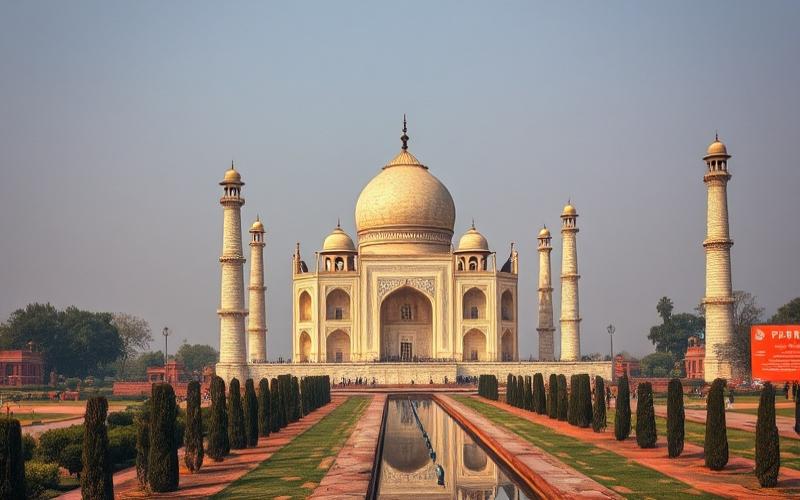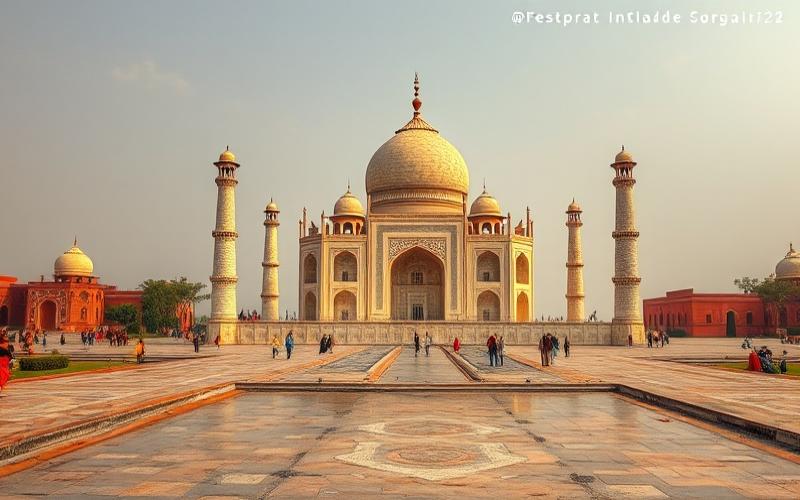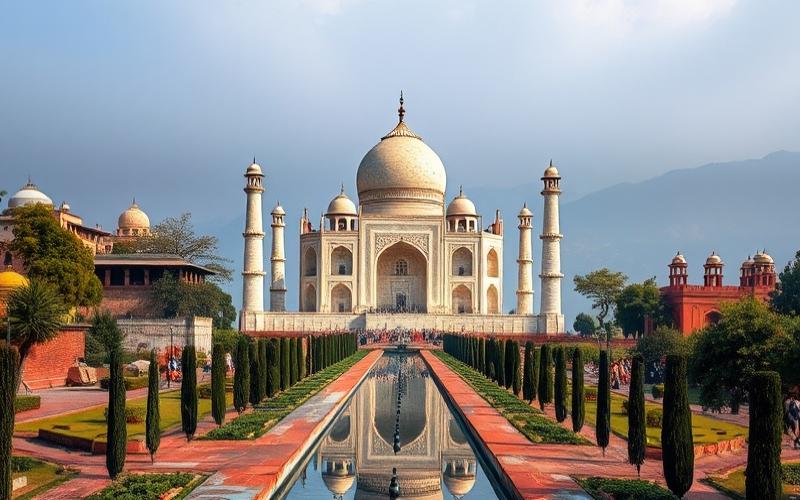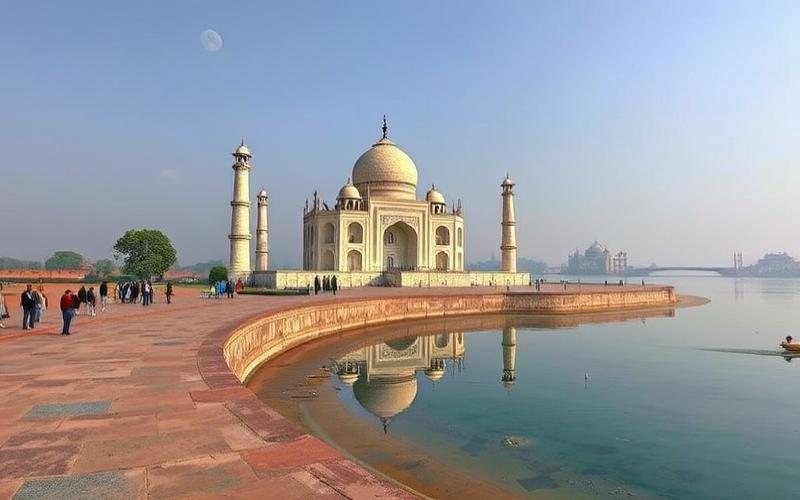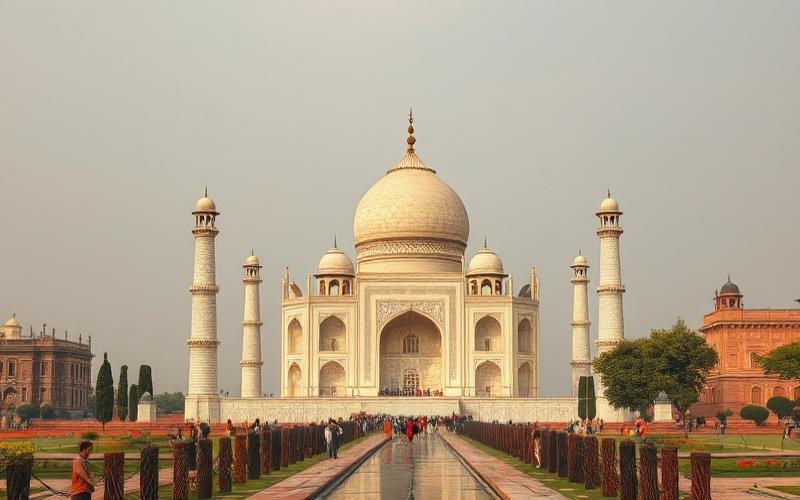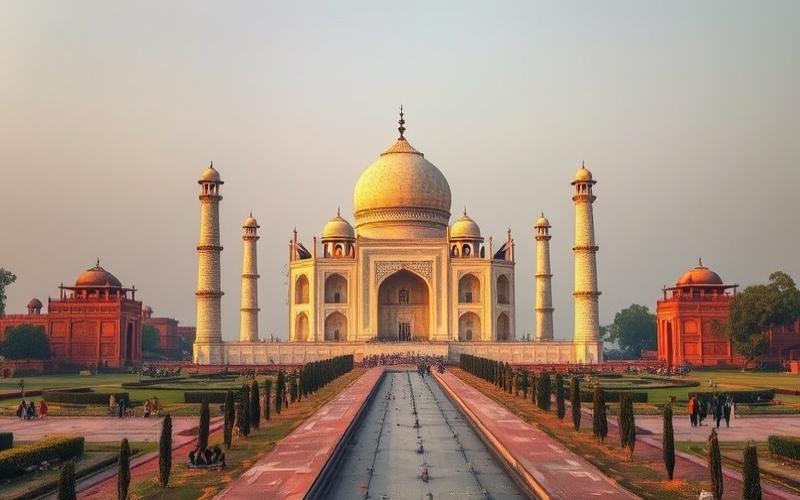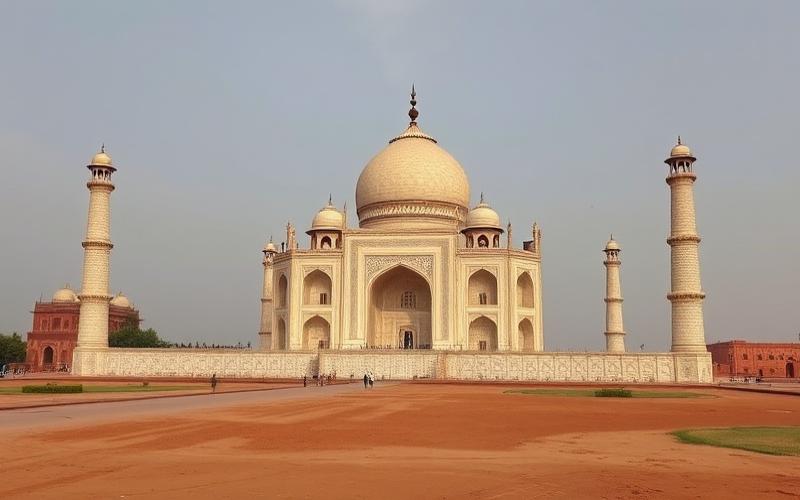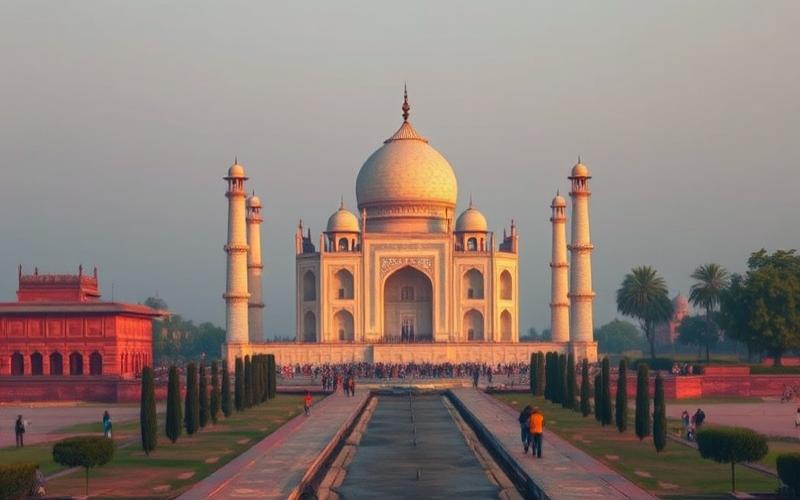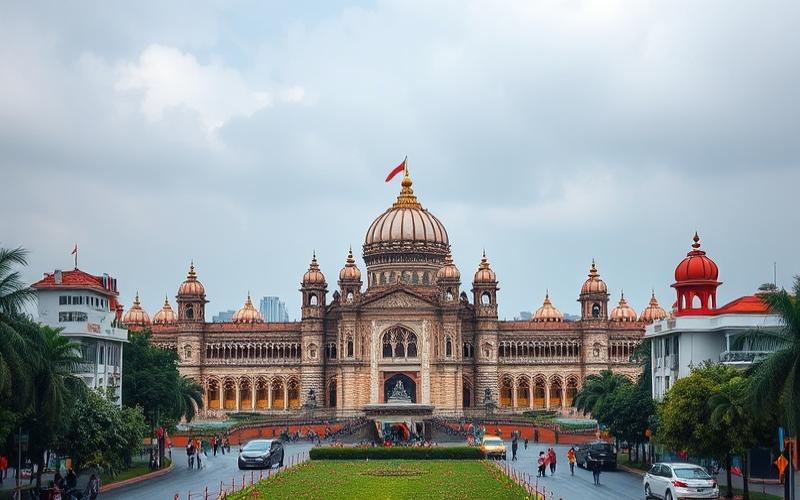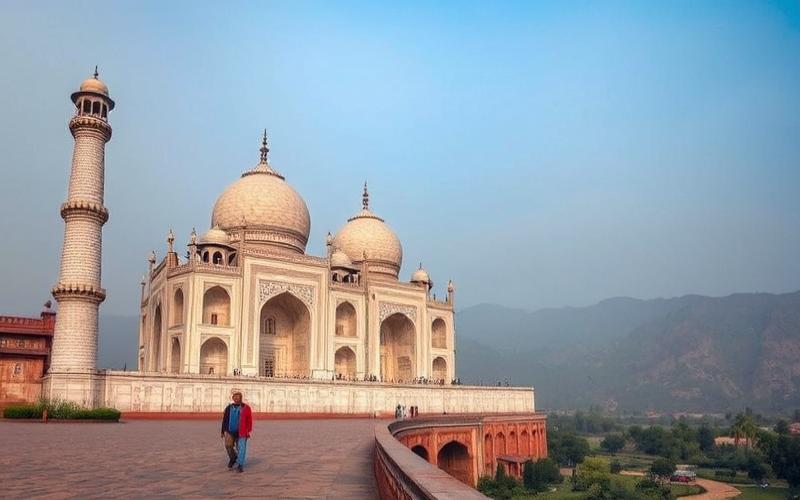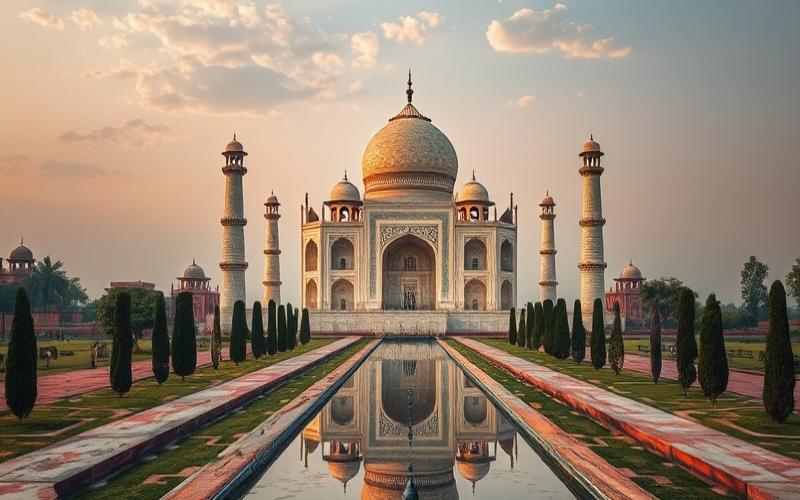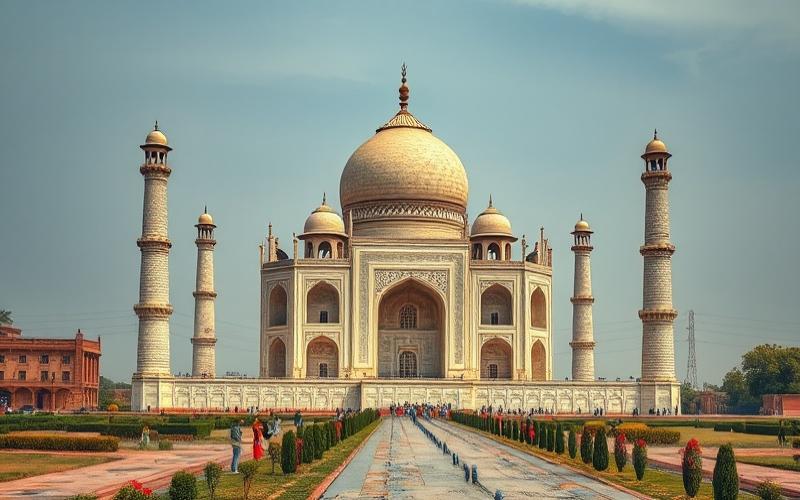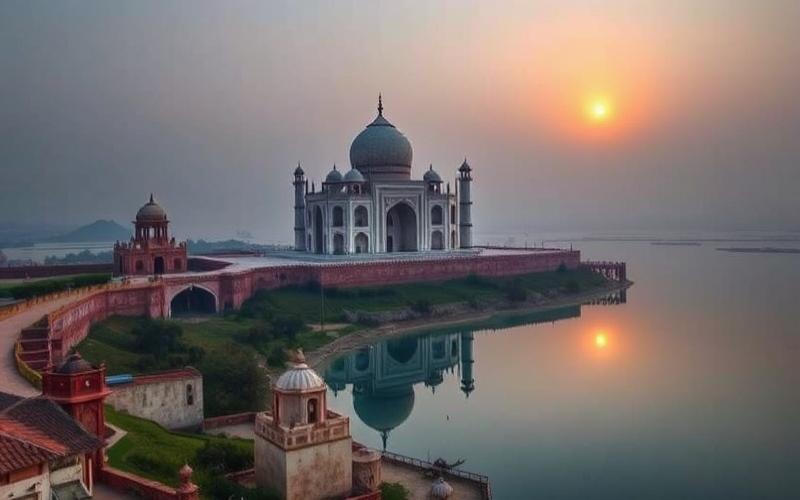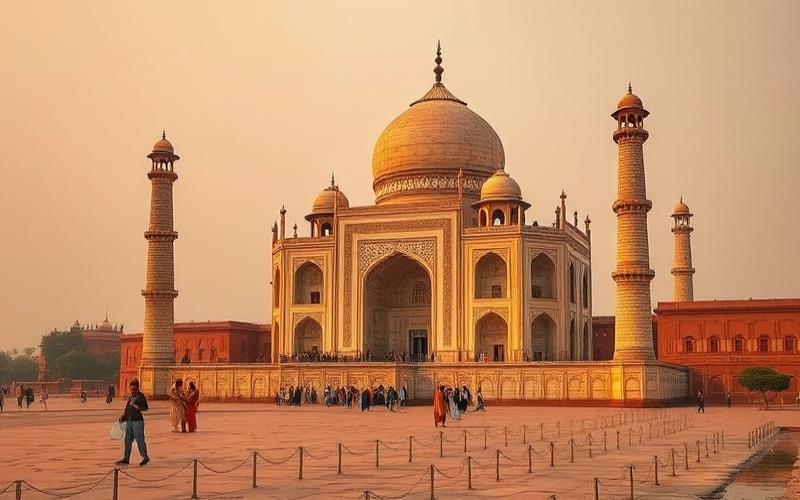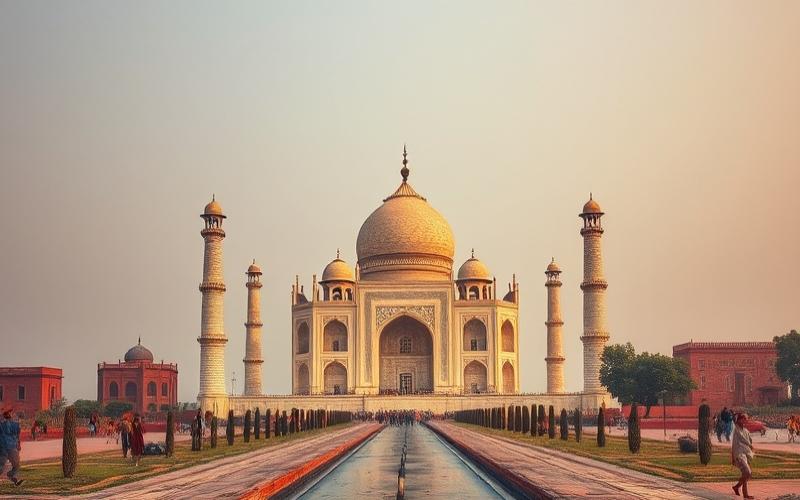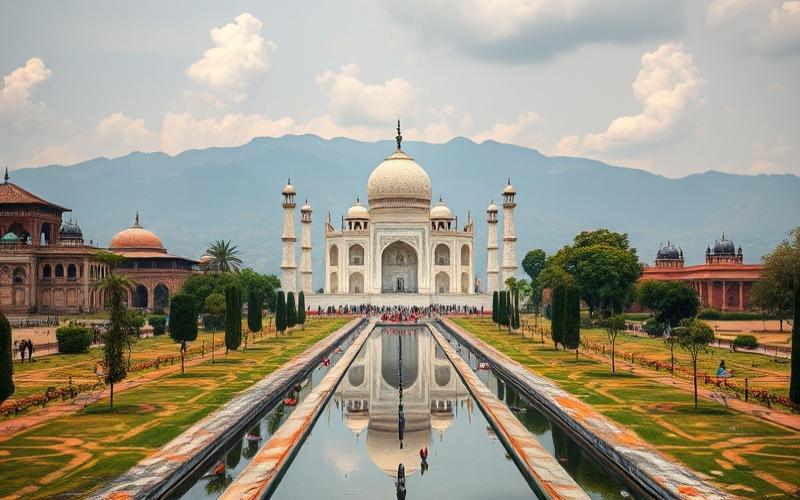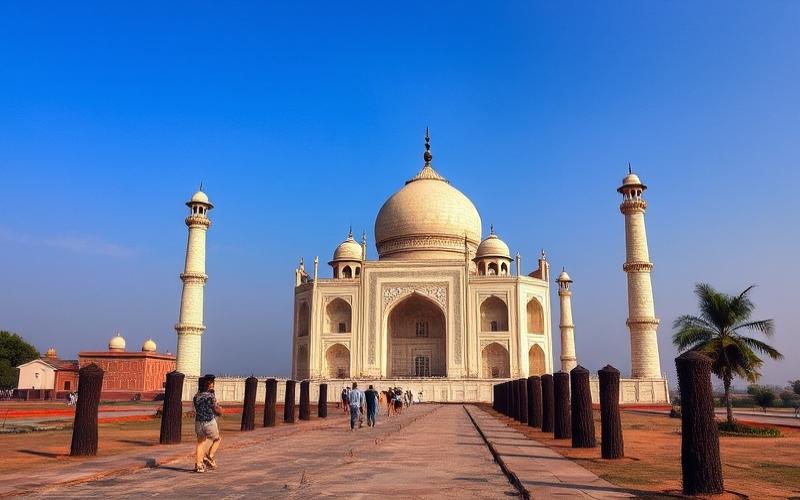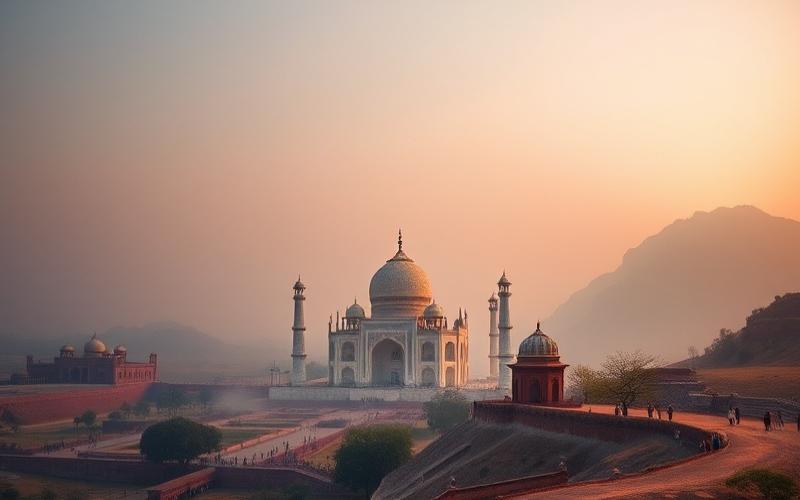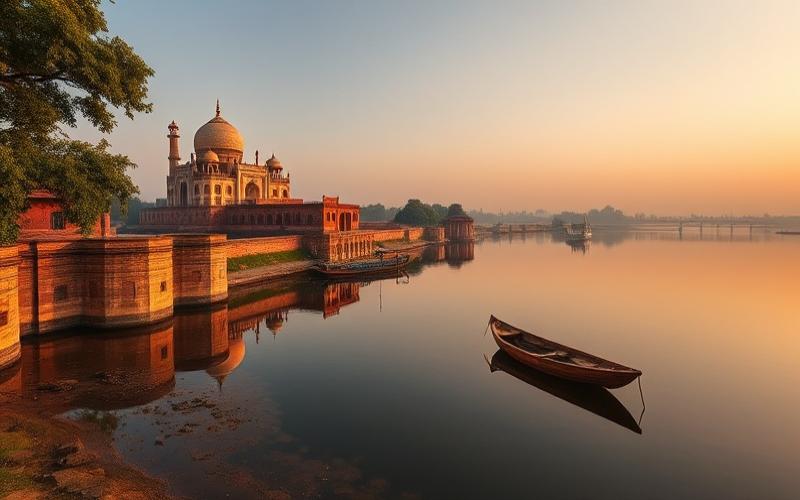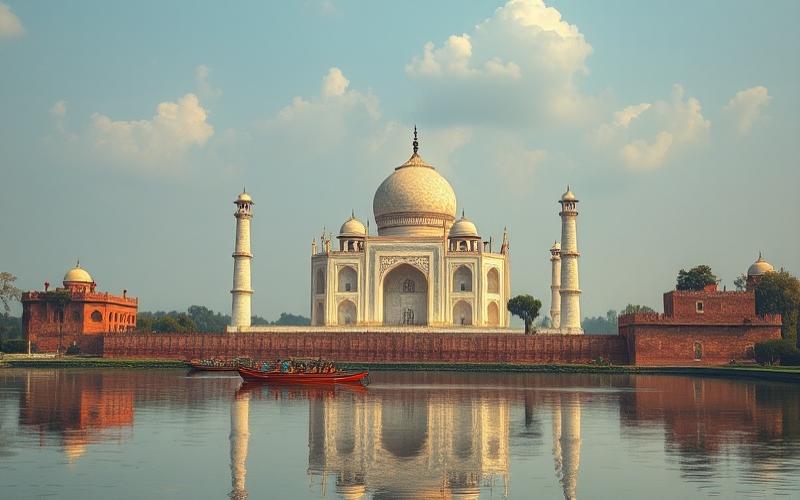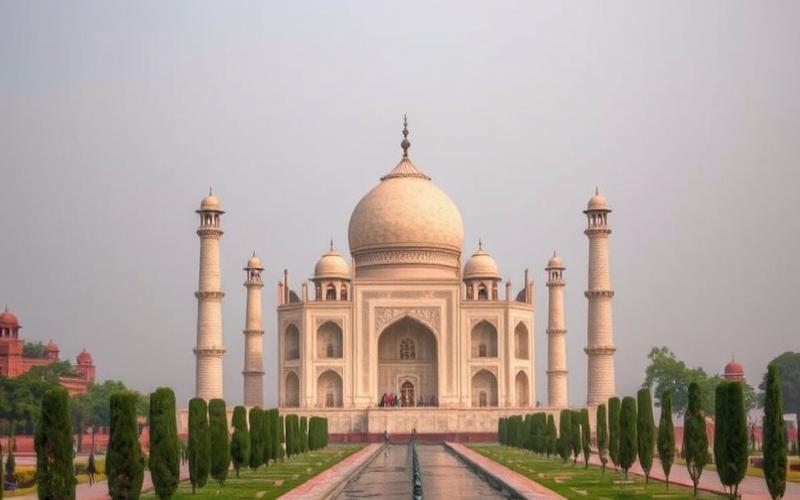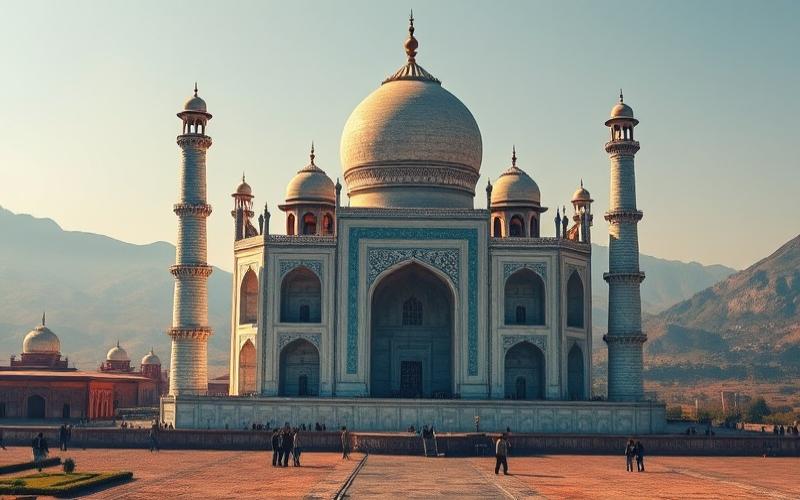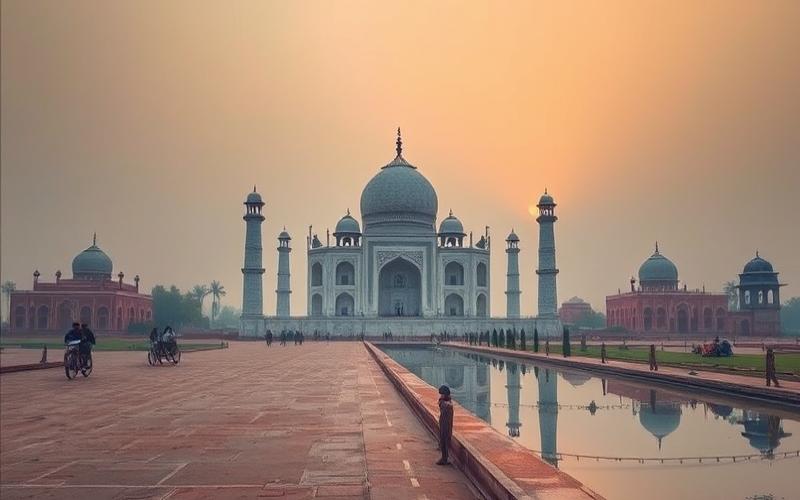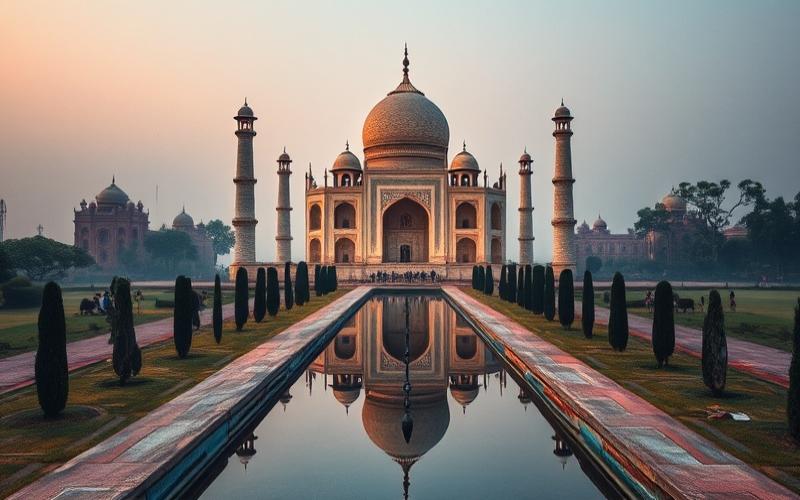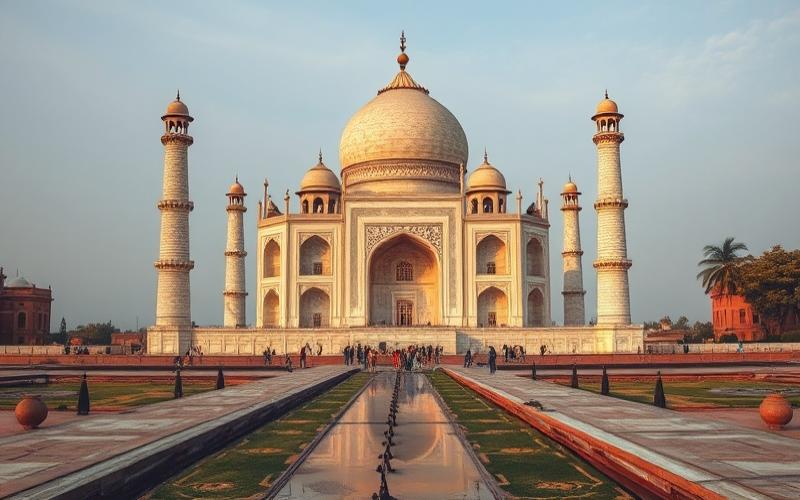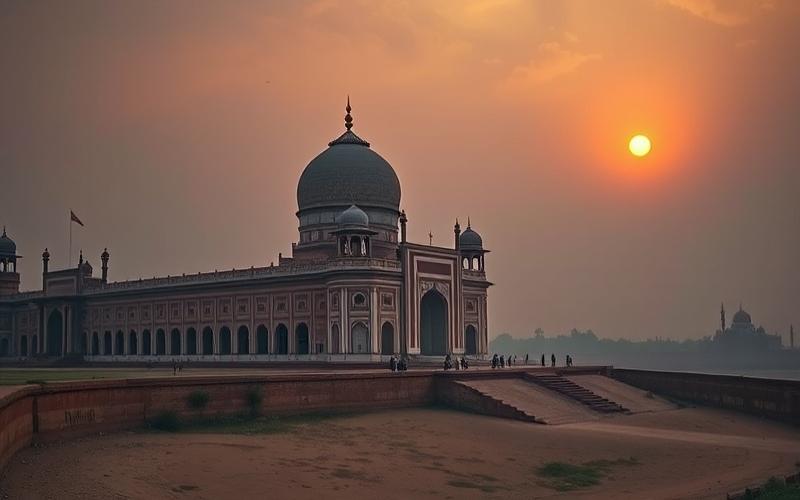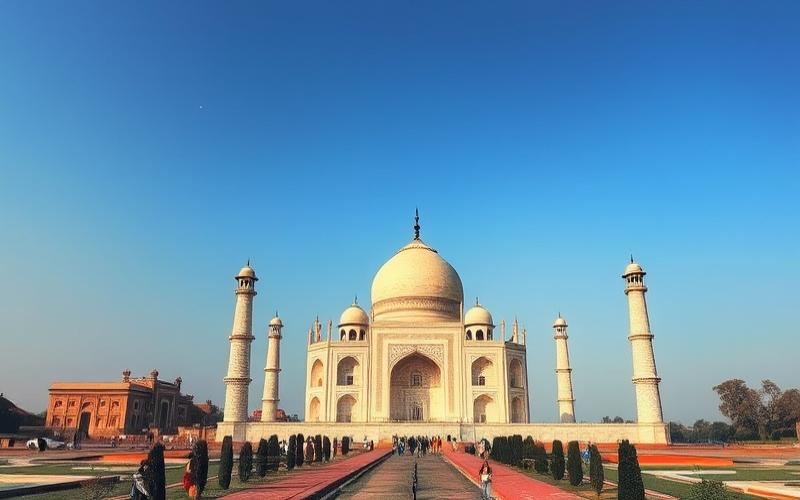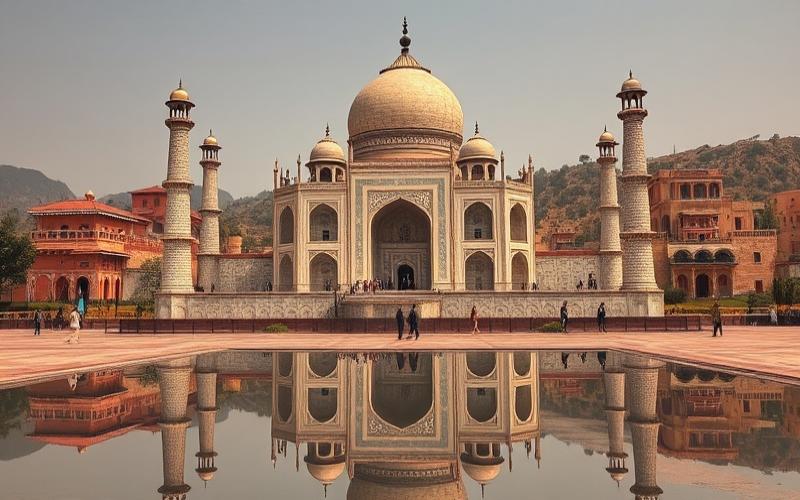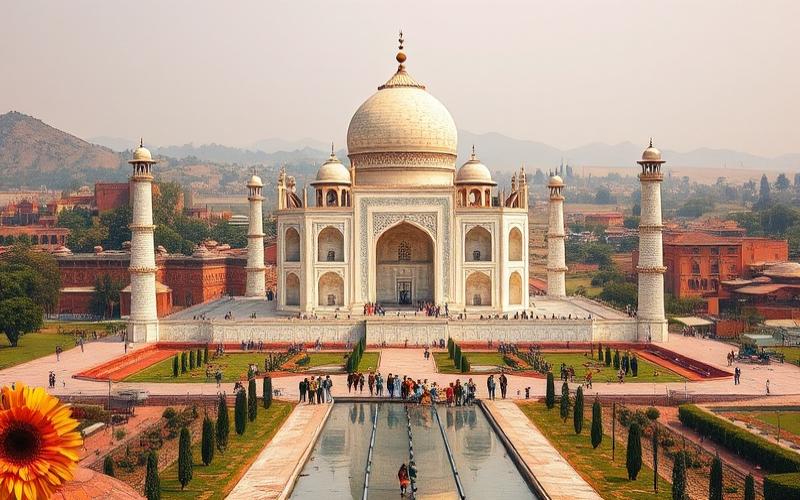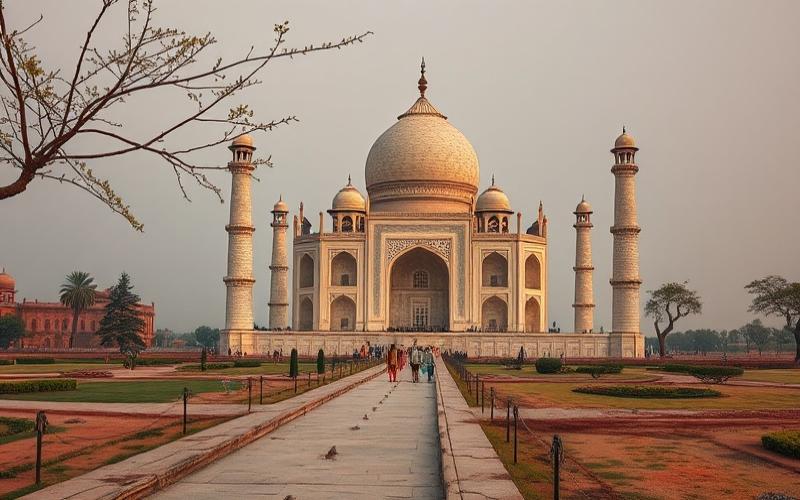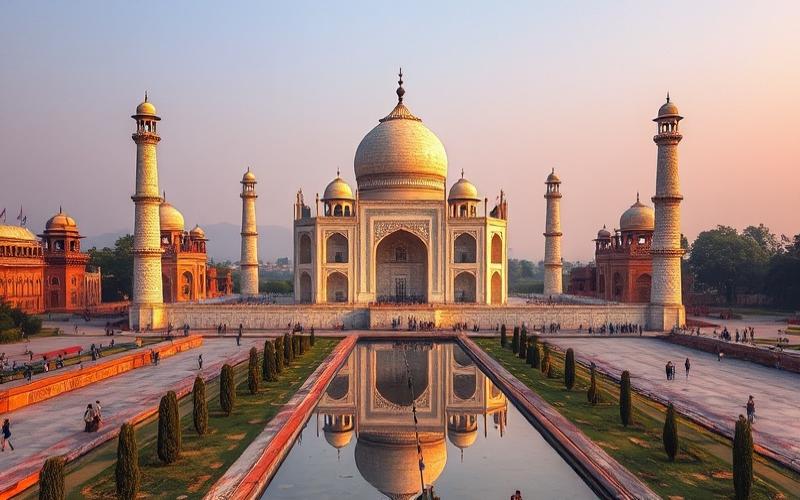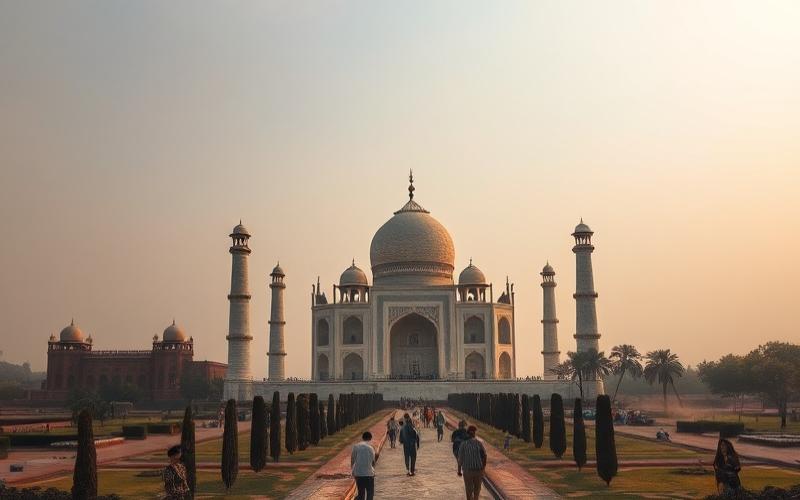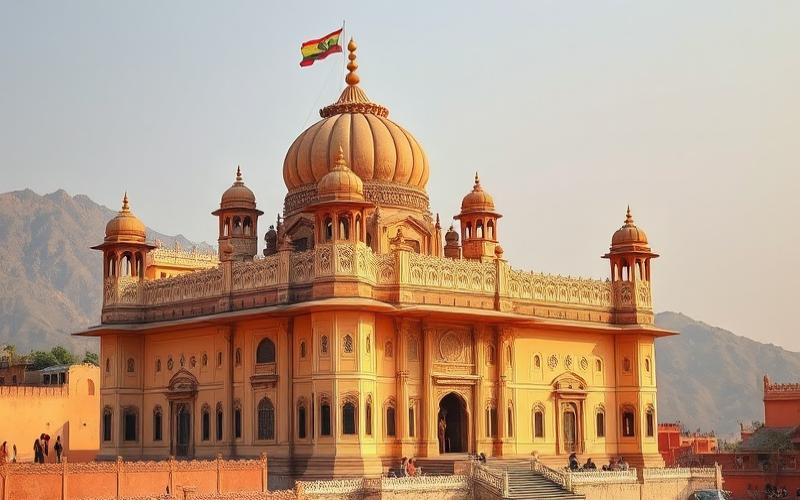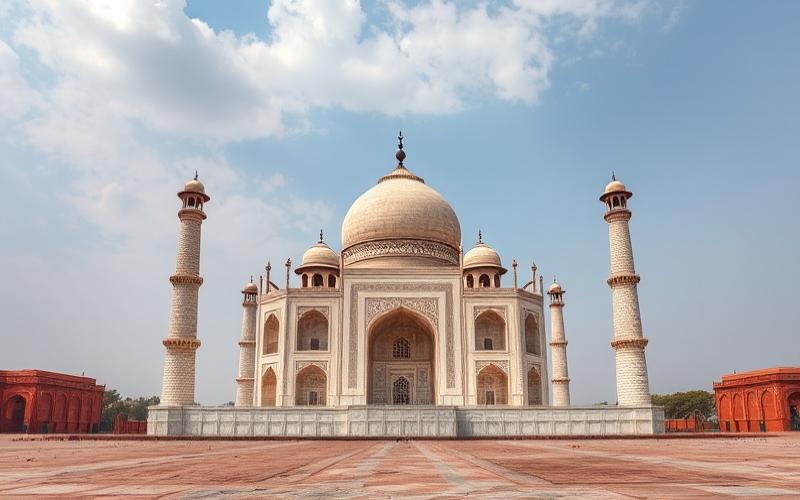
 Published on and written by Cyril Jarnias
Published on and written by Cyril Jarnias
Relocating to India can be an exciting and enriching adventure, but knowing how to approach the crucial issue of safety is essential to ensuring a smooth experience.
Faced with a dynamic mix of cultures, traditions, and diverse infrastructures, it is essential for expatriates to adequately prepare to navigate this complex country.
Practical tips and customized safety protocols are therefore indispensable for feeling comfortable and well-informed, whether for those settling in bustling metropolises or in less frequented areas.
This article examines the key steps for a successful relocation, ensuring that every moment in India is not only safe but also pleasantly memorable.
Life in India: Is It a Safe Destination for Expatriates?
Safety in India for expatriates varies greatly by region: major cities like Bangalore, Pune, and Hyderabad are generally considered safer for foreigners, while areas such as parts of Rajasthan, Sikkim, or Himachal Pradesh have access restrictions and may present more risks or require special permits. Border regions with Pakistan or some isolated rural areas are also known to be more sensitive.
Main Risks for Expatriates
- Pickpockets in crowded markets and public transportation.
- Scams, particularly through fake taxis or fraudulent real estate offers.
- Cultural differences, which can lead to social misunderstandings (gestures perceived differently, dress codes not respected).
- Specific risks for women: reported cases of harassment or inappropriate behavior in some public spaces.
Daily Safety Tips
- Research local customs before each trip (greetings, attire, appropriate behavior).
- Prefer transportation methods recommended by the expatriate community (mobile apps like Uber/Ola rather than unregistered auto rickshaws).
- Use mobile apps dedicated to safety (real-time location, alerts to contacts).
- Never carry too much cash or display valuable items while traveling.
- Avoid certain neighborhoods after dark and remain vigilant in crowded places.
Government Measures for Foreigner Protection
| Initiative | Description |
|---|---|
| Specialized Tourist Police | Increased presence in major tourist areas; multilingual assistance |
| National Helplines (“Tourist Helpline”) | 24/7 numbers accessible nationwide to report a problem |
| Integrated Immigration Management System (IIMS) | Accelerated digitalization of administrative and security tracking |
| NIA – National Immigration Authority | Centralization of migration control; electronic monitoring |
Expatriate Testimonials
“Upon my arrival in Mumbai, I was surprised by the high level of administrative surveillance. But after a few weeks, thanks to the local French expatriate WhatsApp group, I quickly found secure housing through their recommendations.”
“I had a mishap with an unregistered taxi in Delhi; since then, I systematically book my rides through a mobile app.”
Useful Resources and Support Networks
- Facebook/WhatsApp groups dedicated to French-speaking expatriates
- Embassies providing updated lists of reliable service providers
- Bilingual local associations offering workshops on interculturality
Pitfalls to Avoid When Relocating
- Neglecting the importance of the appropriate visa: any overstay exposes you to severe penalties.
- Forgetting international health insurance covering repatriation/evacuation.
- Underestimating administrative burden: anticipate long bureaucratic delays, especially when renewing visas/work permits.
To ensure a smooth expatriation, it is recommended to invest in good private international health coverage, actively rely on your local network upon arrival (logistical support, practical advice), scrupulously respect all Indian legal obligations related to your stay, and regularly inform yourself through official sources regarding any regulatory changes.
Good to Know:
Safety in India varies by region, with areas like Goa or Pondicherry generally perceived as safer compared to other more unstable northern regions. Expatriates may encounter challenges such as pickpockets and scams, especially in crowded markets, while cultural differences can sometimes lead to misunderstandings. For enhanced personal safety, it is important to familiarize yourself with local customs, remain vigilant in public transportation, and use mobile safety apps. The Indian government has implemented measures like tourist police and safety helplines to support expatriates.
Practical Tips for a Hassle-Free Expatriation
Essential Administrative Steps for Expatriating to India
- Obtain an appropriate visa (work, business, student) before departure via the e-visa system. The passport must be valid for at least 6 months after the visa expires and have three blank pages.
- Register with the FRRO within 14 days of arrival if the stay exceeds 180 days.
- Apply for a PAN number online (essential for tax and banking procedures).
- Obtain an Aadhaar card locally, used as proof of local identity.
| Procedure | Where? | When? | Required Documents |
|---|---|---|---|
| Visa | Online | Before departure | Passport, supporting documents |
| FRRO | Local office | Within 14 days of arrival (>180 days) | Passport, visa |
| PAN | Online | After arrival | Passport, photo |
| Aadhaar | Local enrollment center | After arrival | Passport, proof of address |
Choosing a Safe Neighborhood to Live In
- Prefer neighborhoods known for their safety: gated communities, areas near international schools or business centers.
- Consult other expatriates or local groups before signing a lease.
- Check proximity to medical facilities and reliable transportation.
Health and Insurance
Key Considerations:
- Subscribe to international health insurance, adapted to local medical costs often high in private hospitals.
- Know the location of hospitals recommended by your embassy or expatriate community.
Practical Tips:
- Prepare a personal medical kit with usual treatments (antimalarials depending on the region).
Cultural and Social Aspects Impacting Daily Life
List of points to anticipate:
- Respect local dress codes especially in public spaces (covering clothing recommended).
- Observe social rules regarding food (beef prohibition among Hindus; many vegetarians).
Tips for Effectively Integrating into the Local Community
- Participate in community or international association events
- Learn a few basic phrases in Hindi
- Join expatriate groups on social networks
- Get involved in a local sports or cultural activity
Tips for Handling Emergencies / Unexpected Situations
List of recommended actions:
- Always keep a paper/digital copy of your passport, visa, and Indian entry stamp
- Carry the contact information of your consulate/embassy and a recognized hospital
In case of lost/stolen passport:
- Immediately report to local police
- Contact your consulate to obtain a temporary document
- Request a mandatory “Exit Permit” before any departure
Useful Local Resources for Adaptation
- French embassy/consulate: administrative assistance, emergency aid
- French/local associations dedicated to expatriates (example: Alliance Française)
- Specialized Facebook/WhatsApp groups “French in India”
- Local professional networking platforms
Good to Know:
When expatriating to India, it is essential to meticulously prepare your administrative file, ensuring you have all appropriate visas and register your address with local authorities. To choose a neighborhood, prioritize those known for their safety like Powai in Mumbai or Whitefield in Bangalore. Regarding health, subscribe to insurance covering care outside India and consider recommended vaccinations. Immersing yourself in local culture, for example by attending festivals or joining local clubs, will facilitate your integration. Familiarize yourself with local emergency numbers to act quickly in unforeseen situations and consult online expatriate groups that offer support and advice. Finally, do not hesitate to use relocation agency services to simplify your adaptation.
Tips to Strengthen Your Daily Safety
Tips to Strengthen Your Daily Safety in India (Expatriates)
Vigilance in Public Places
- Always keep your personal belongings (bag, phone, wallet) under surveillance and avoid displaying valuable items.
- Be particularly attentive in crowded places (markets, stations, tourist sites) and avoid carrying large sums of money.
- Be extra vigilant against pickpockets and snatch thefts.
- For women, wear covering clothing and keep shoulders covered to avoid unwanted attention.
Using Local Transportation Safely
- Prefer official taxi companies or recognized apps (Ola, Uber).
- On trains and buses, lock your luggage and always keep it within sight.
- Refuse any food or drink offered by strangers during your trips (risk of substances to induce sleep and theft).
- Notify a contact of your movements and avoid traveling alone at night, especially in isolated areas.
Being Aware of Your Surroundings
Stay attentive to what is happening around you, especially in unfamiliar places or less frequented neighborhoods.
Identify emergency exits and gathering points in public places.
Home Security Devices
| Recommended Measure | Description |
|---|---|
| Reinforced Locks | Install strong locks on doors and windows. |
| Alarm System or Camera | Prefer devices connected to your phone. |
| Outdoor Lighting | Opt for motion-sensor lights around the residence. |
| Secure Gate | Limit access to your home, especially in large cities. |
Storing Important Documents
- Make paper and digital copies of your passport, visa, flight tickets, and essential documents.
- Store originals in a safe or secure place at home.
- Carry only copies during daily outings.
Useful Mobile Apps for Personal Safety
| Application | Main Use |
|---|---|
| 112 India | National emergency number (police, rescue) |
| Himmat Plus | Safety app, Delhi Police |
| My Safetypin | Safety assessment of locations |
| Raksha Kerala Police | Emergency assistance, Kerala Police |
Cultural and Legal Differences Regarding Safety
- Some rules are very strict: possession of firearms strictly prohibited, even for self-defense.
- Social relations may differ: physical proximity and direct exchanges are sometimes interpreted differently than in Europe.
- Women should observe stricter dress codes, especially outside major cities.
- Never follow people claiming to be official agents at stations or airports; go to official offices for any procedure.
Trusted Local Sources for Information
- Embassy or consulate of your country in New Delhi or the region.
- Official websites:
- French Ministry for Europe and Foreign Affairs (Travel Advice)
- Indian government portal on foreigner safety
- 112 India app for emergencies
- Expatriate communities (forums, local social groups) for experiential advice.
Stay informed by regularly consulting government websites and maintaining a cautious and discreet attitude in your daily life.
Good to Know:
To ensure your daily safety in India, be vigilant in public places, avoid showing too much wealth, and keep an eye on your personal belongings. Use reputable local transportation services and check ratings before booking a taxi. Install security devices such as surveillance cameras at home, and store your important documents in a secure safe. Download local apps like “MySafetipin” that provide real-time safety advice. Be aware of cultural and legal differences, especially regarding safety, and consult reliable sources such as embassies or expatriate forums for up-to-date information.
Disclaimer: The information provided on this website is for informational purposes only and does not constitute financial, legal, or professional advice. We encourage you to consult qualified experts before making any investment, real estate, or expatriation decisions. Although we strive to maintain up-to-date and accurate information, we do not guarantee the completeness, accuracy, or timeliness of the proposed content. As investment and expatriation involve risks, we disclaim any liability for potential losses or damages arising from the use of this site. Your use of this site confirms your acceptance of these terms and your understanding of the associated risks.

